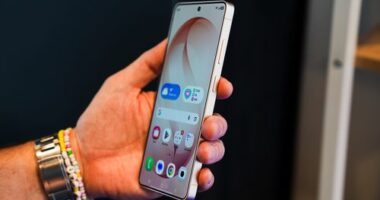Share this @internewscast.com
A groundbreaking study has revealed intriguing insights into the evolution of kissing, suggesting that our ape ancestors and early humans, such as Neanderthals, likely engaged in lip-locking with both friends and romantic partners. This affectionate behavior could trace back as far as 21 million years.
While the earliest documented instances of kissing among humans date back 4,500 years to civilizations like Mesopotamia and Ancient Egypt, Matilda Brindle, the lead researcher from Oxford’s Department of Biology, describes kissing as an “evolutionary conundrum.” She points out that although kissing involves significant risks, such as the transmission of diseases, it does not seem to offer immediate reproductive or survival benefits.
The study does not provide a definitive explanation for why or how kissing began. Brindle notes that kissing serves various purposes, from evaluating potential mates to acting as foreplay, fostering social bonds, reducing tension, and even preparing food for offspring by pre-chewing it.

Brindle highlights the scarcity of data on kissing among animals beyond ape species, which complicates efforts to trace the development of this behavior over time. Moreover, much of the available information is derived from observations of animals in captivity or sanctuaries, underscoring the need for more extensive studies across diverse species.
“What we’ve accomplished is a significant first step in demonstrating that kissing is an evolved trait,” Brindle emphasized, marking a crucial advancement in understanding the evolutionary history of this intimate practice.
“What we’ve done, which is a really important first step, is showing it’s an evolved trait,” Brindle said.
“It’s really ancient. But why? And that’s the amazing next step if people want to pick up the mantle.”
Kissing is not a universal behaviour in human society, the researchers noted in the new study. It is only documented in 46 per cent of cultures, according to a 2015 paper.
“We did find a strong evolutionary signal in kissing but it doesn’t mean it has to be retained,” Brindle explained.
For some populations, she added, kissing might not be a good fit.
“Primates are extremely flexible species, very intelligent, and so kissing might be useful in some contexts but not in others,” she said.
“And if it’s not useful, it is quite risky with high potential for disease transfer.”
Kissing is more than just “mouth-to-mouth” touching, and the study doesn’t really shed much light on why humans kiss the way they do, said Adriano Reis e Lameira, an evolutionary psychologist and primatologist at the University of Warwick, who was not involved in the work.
“The large majority of kisses humans give are not mouth-to-mouth,” he said via email.












